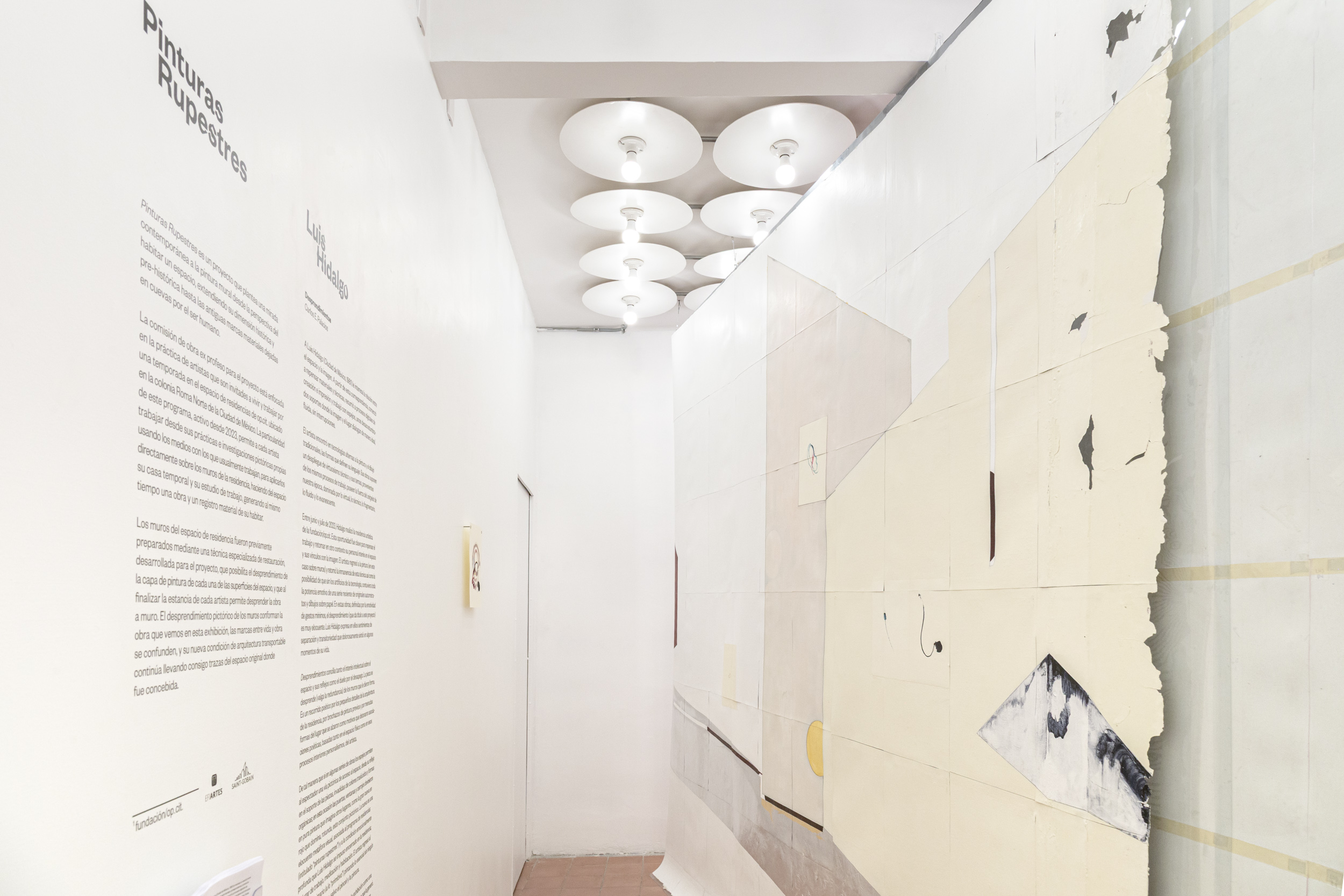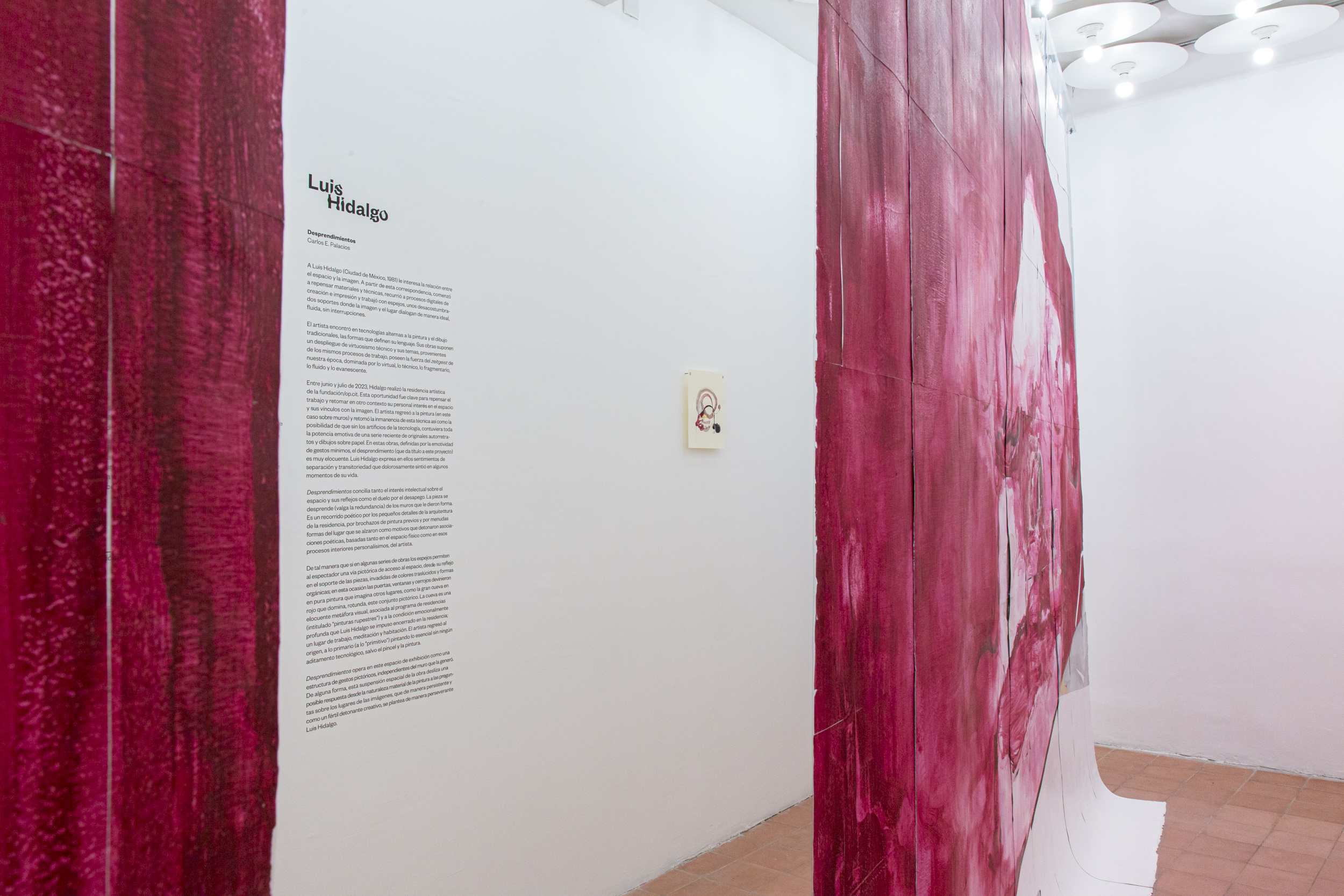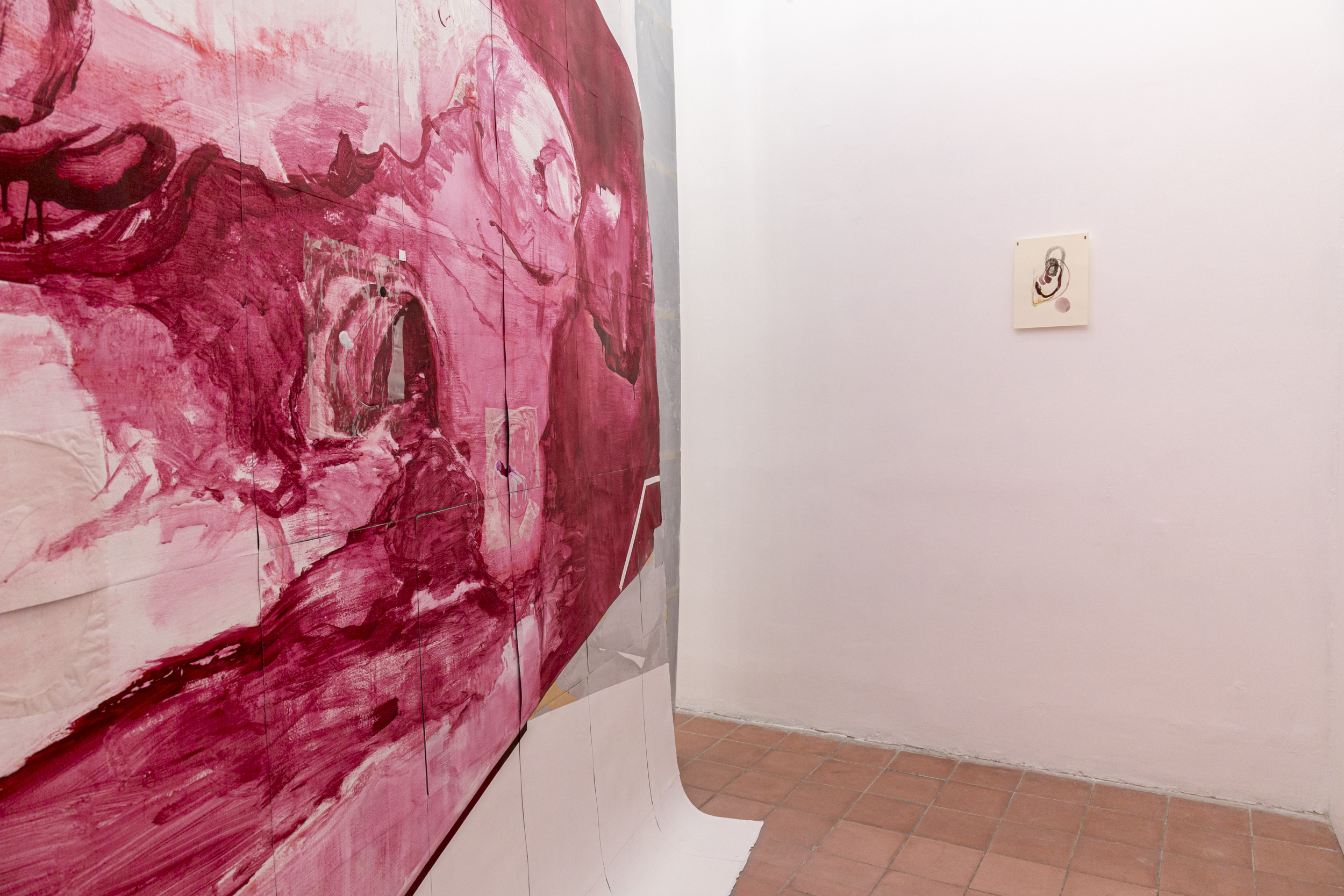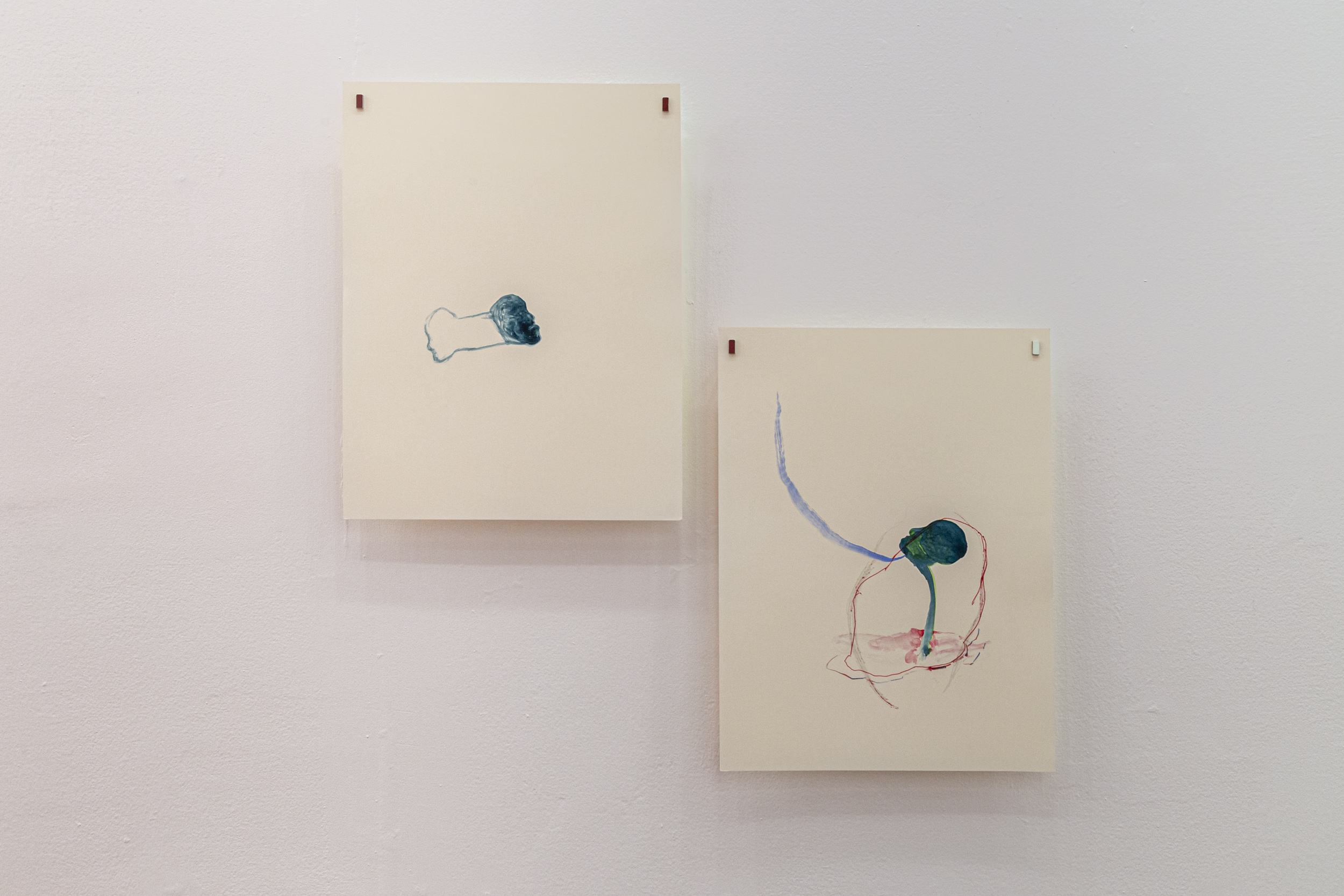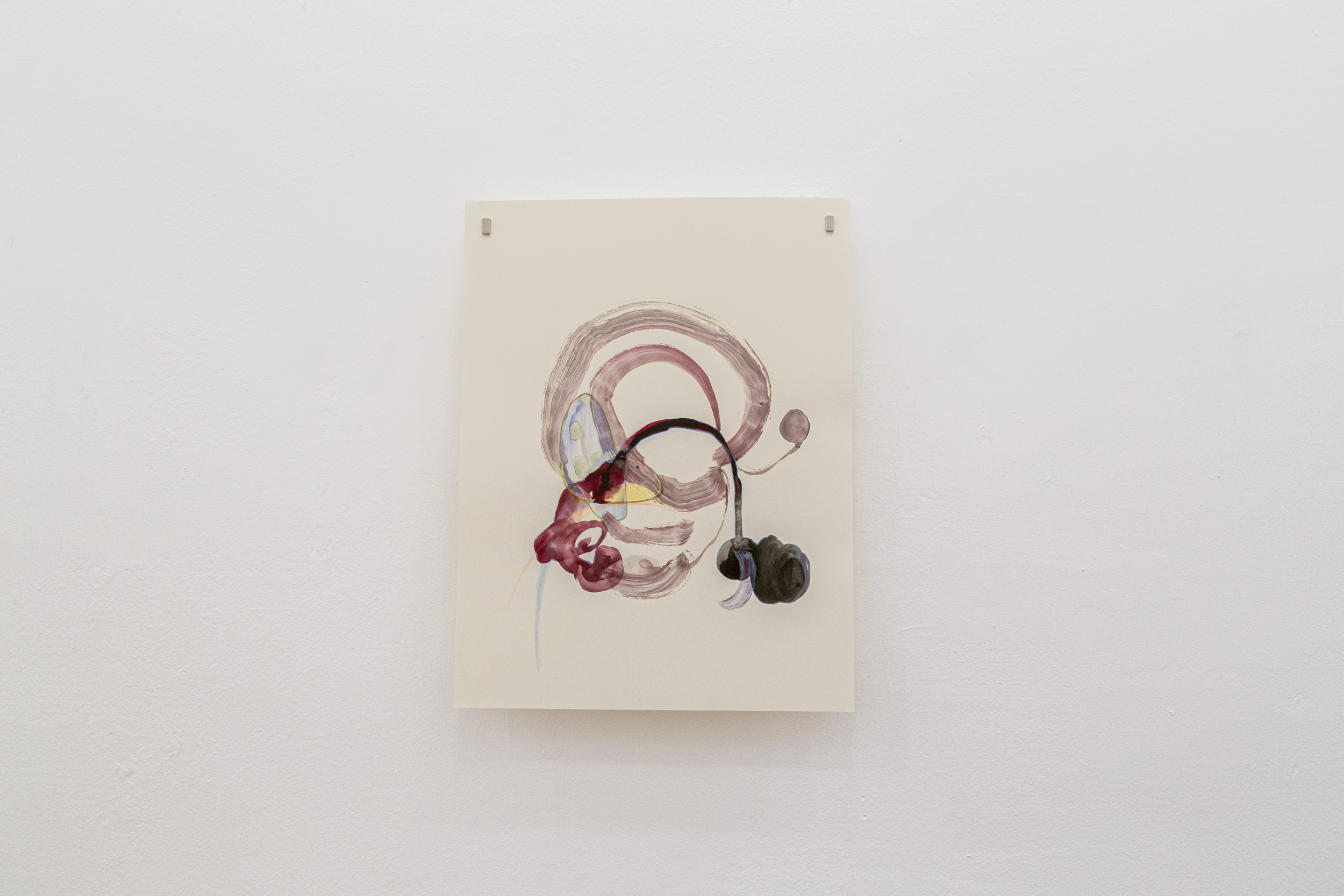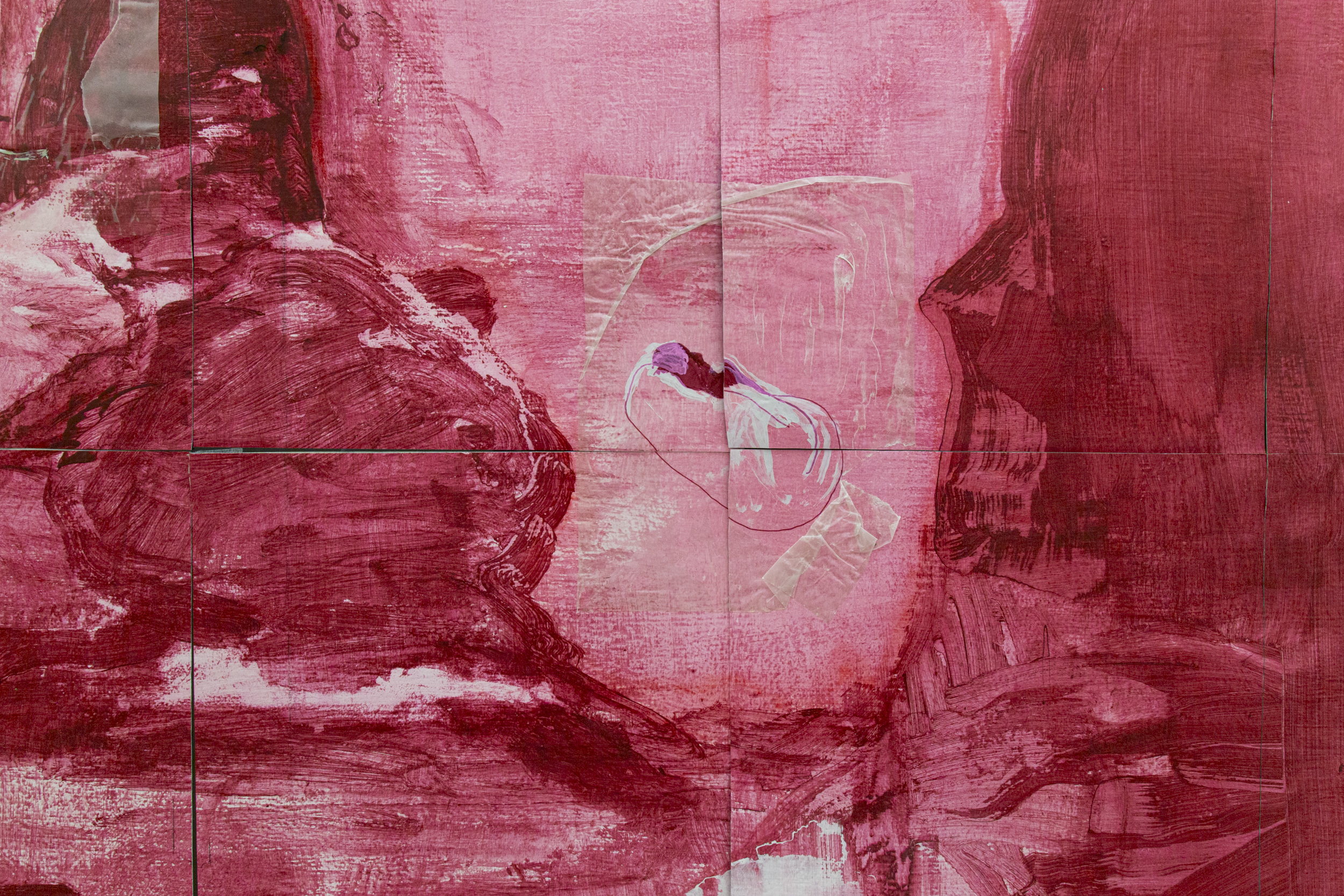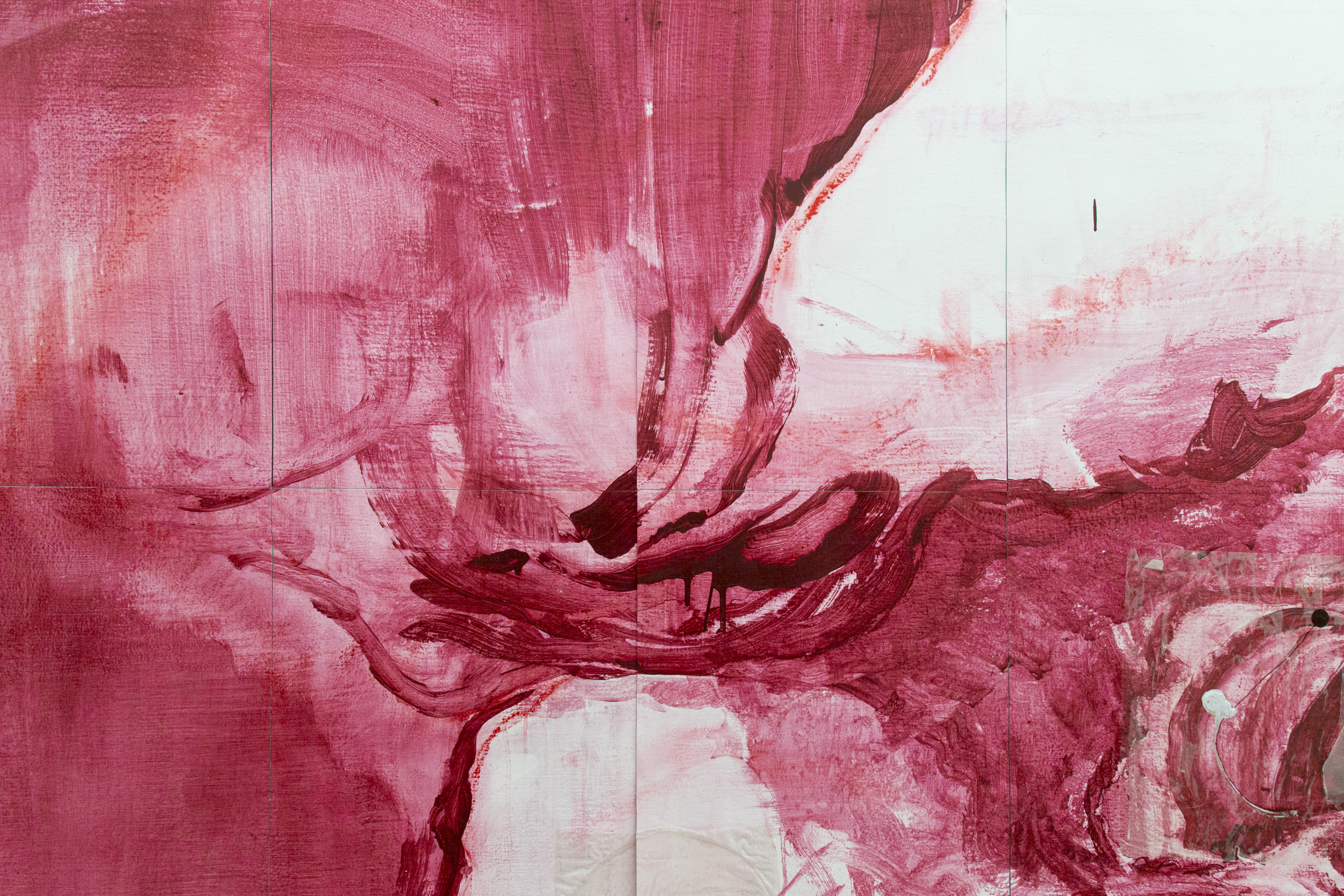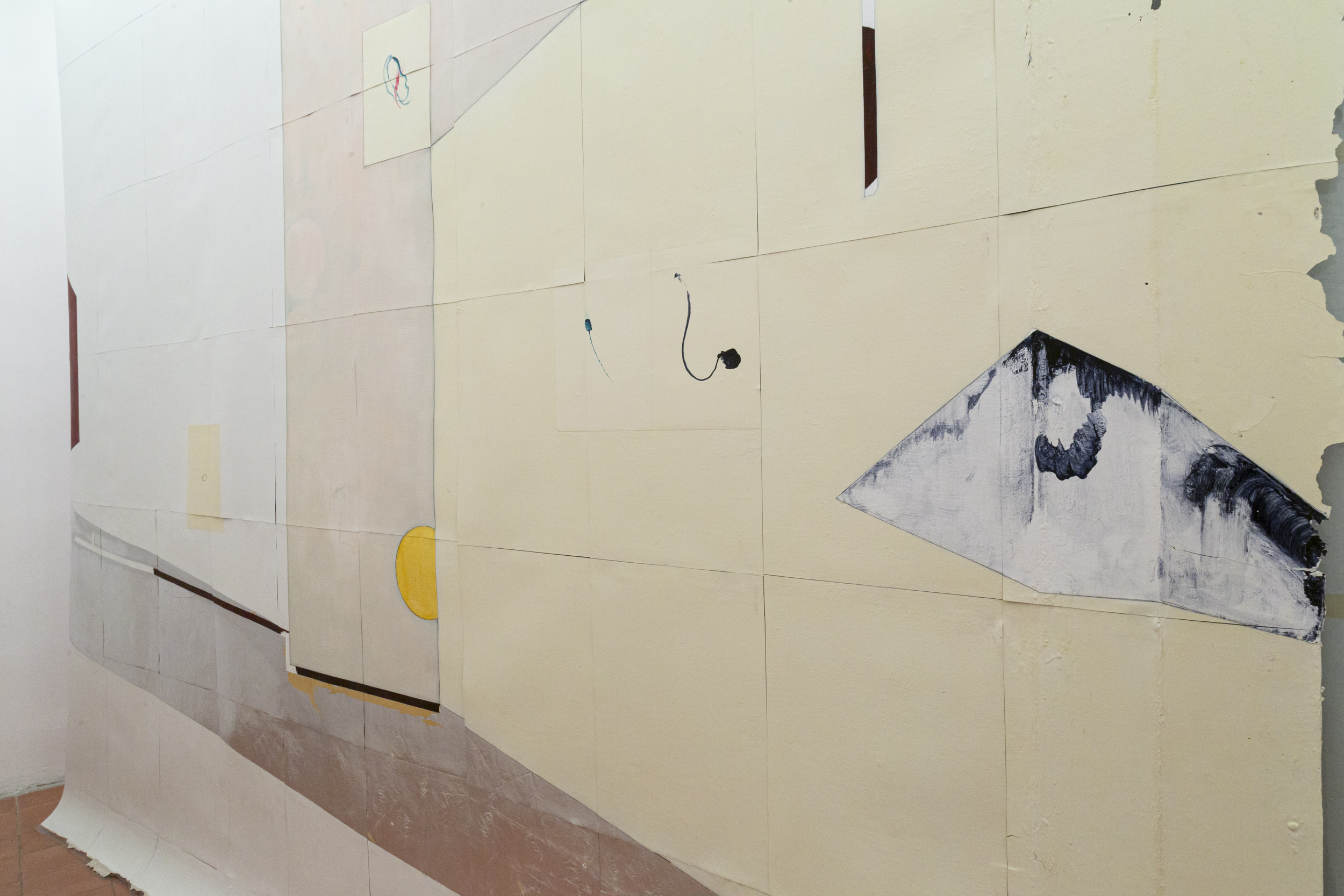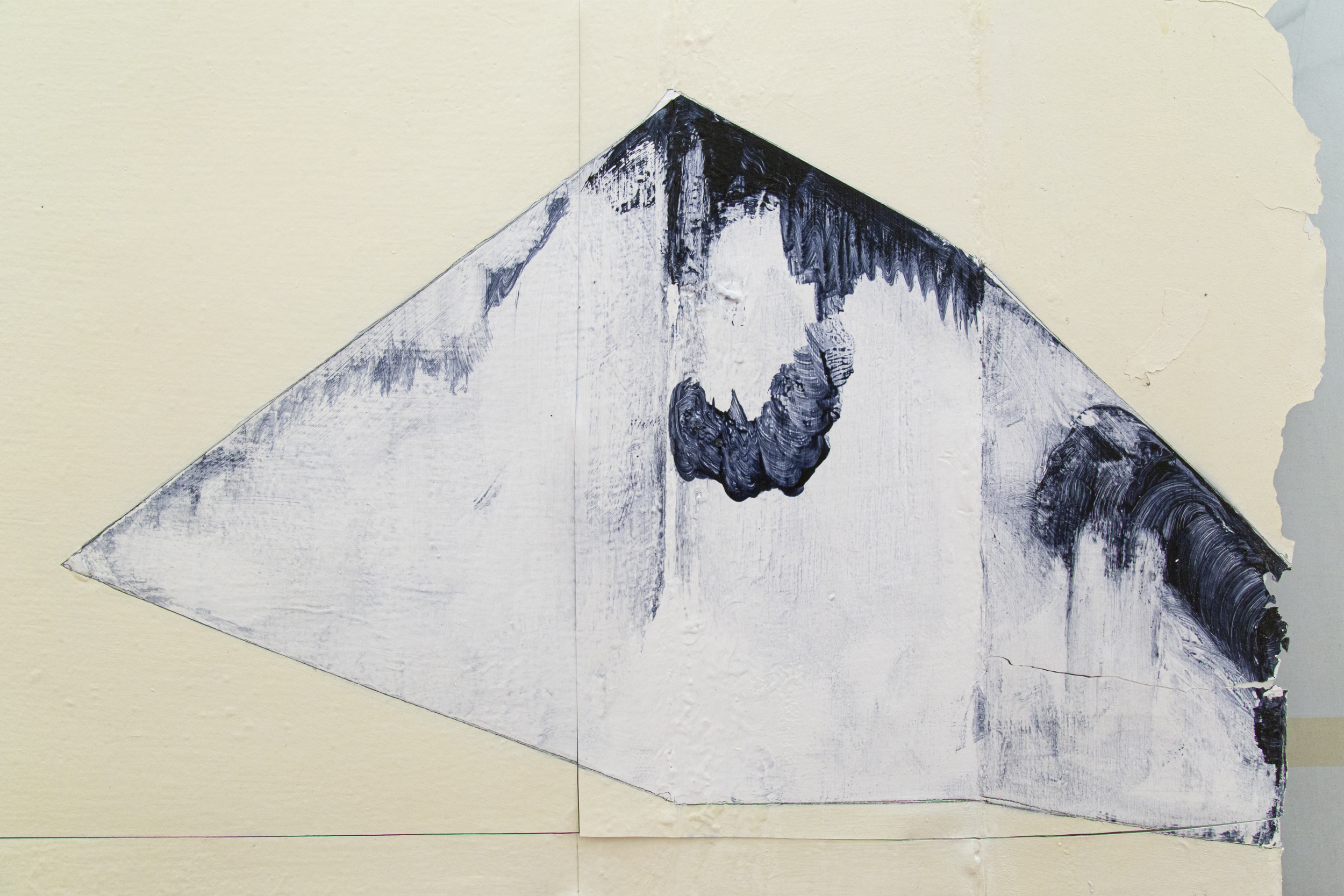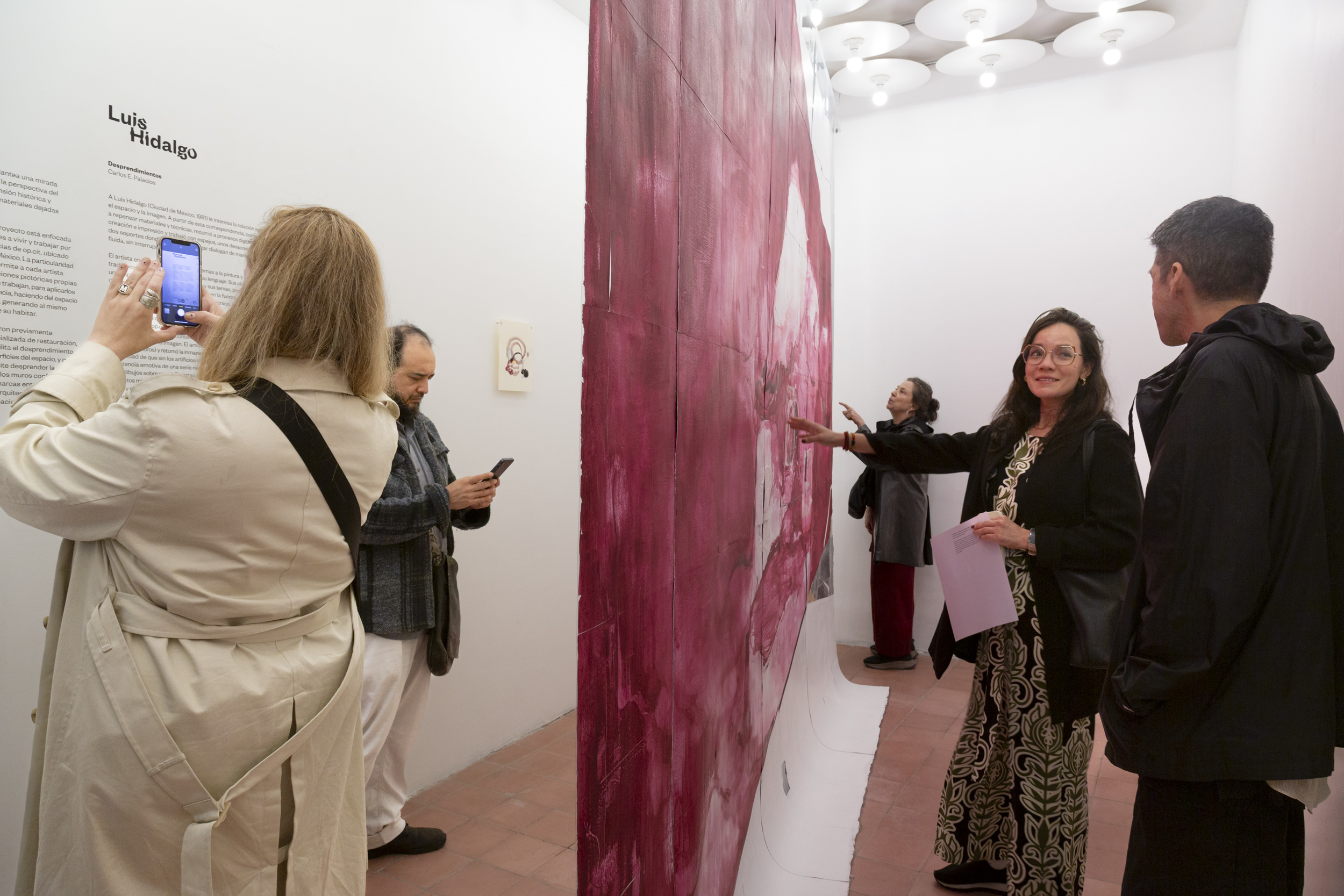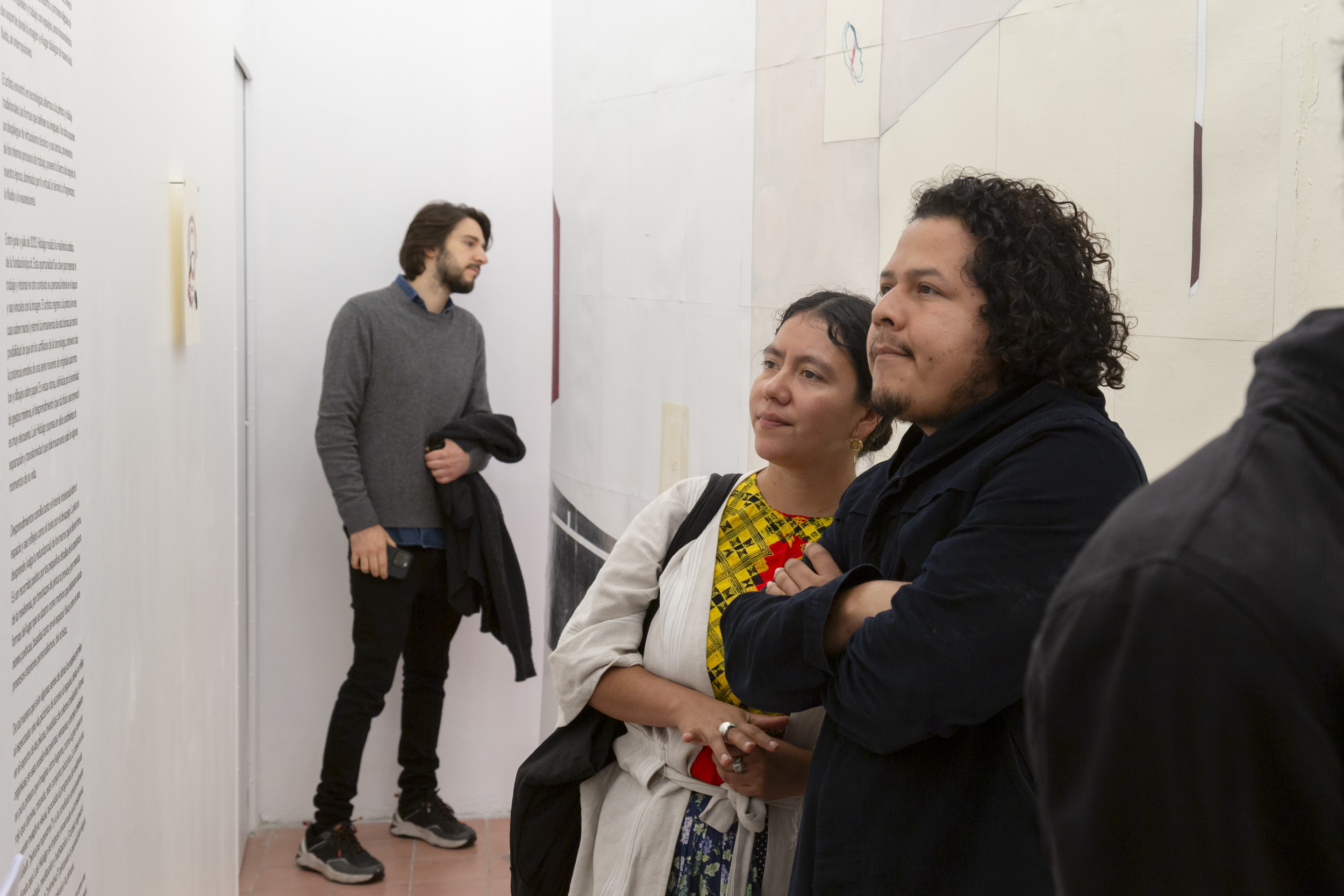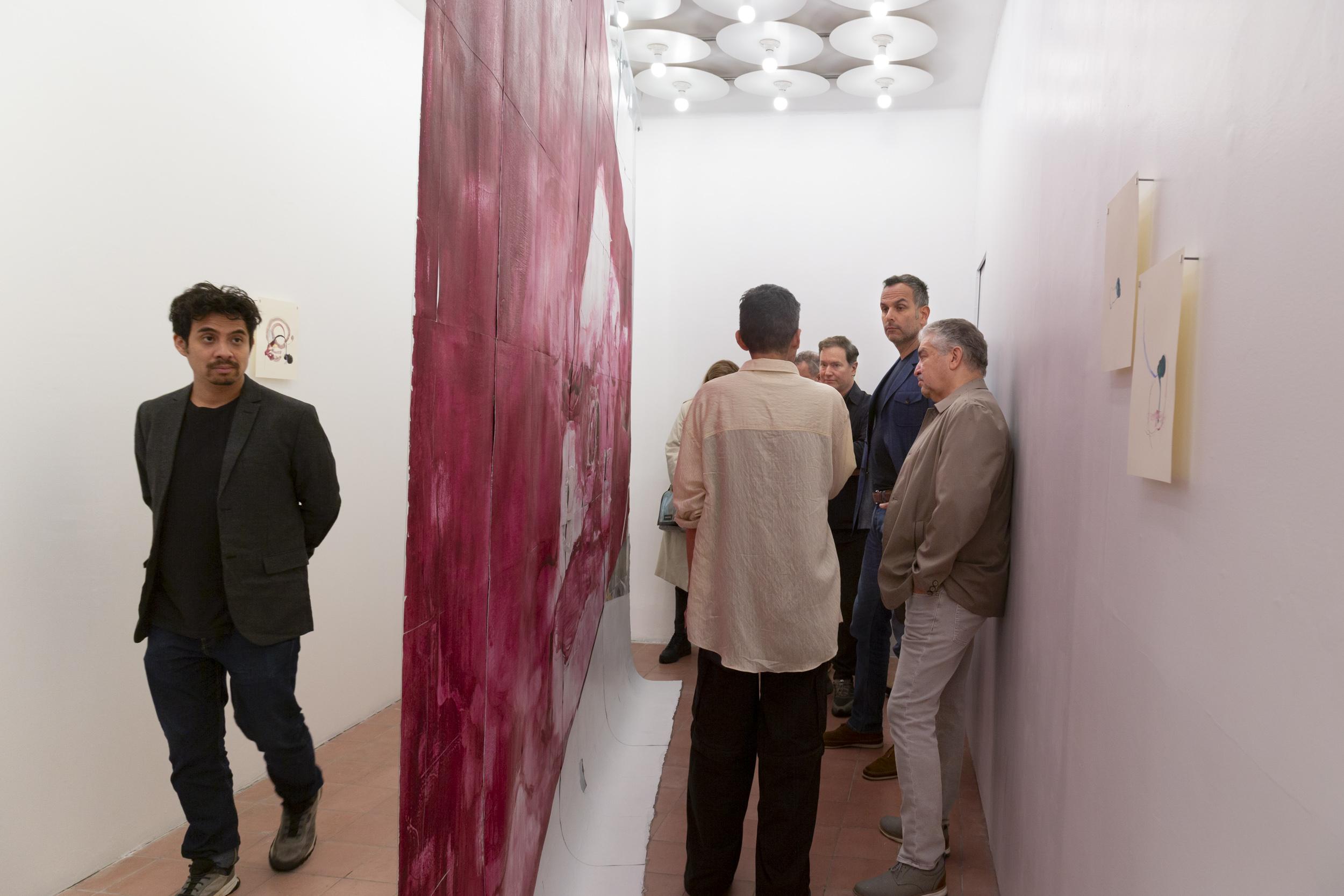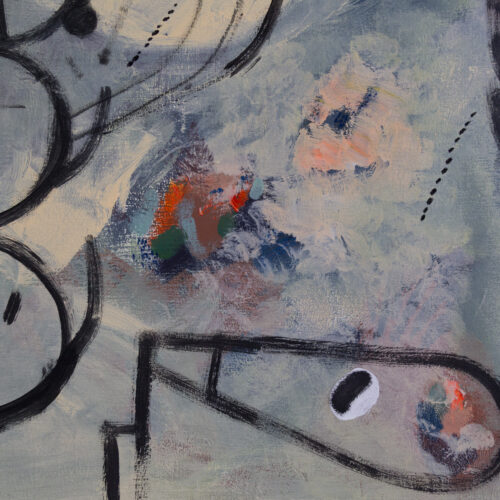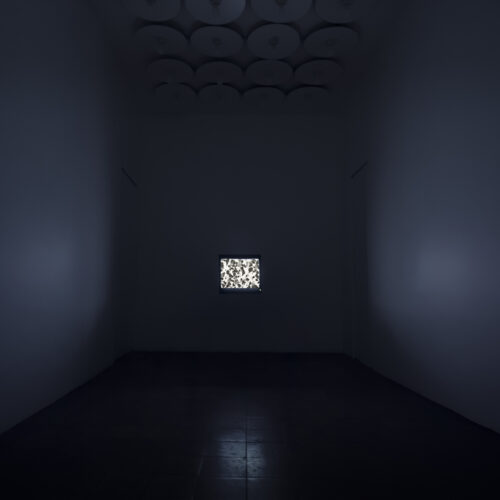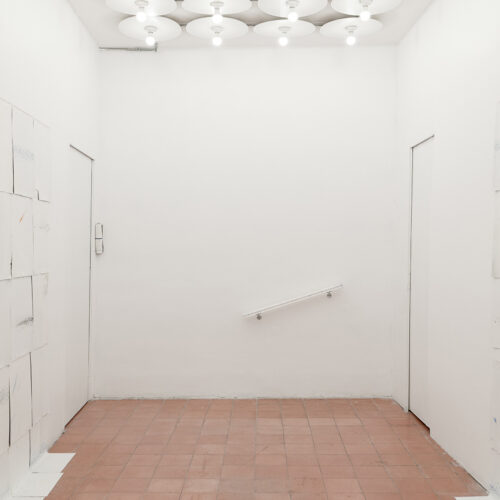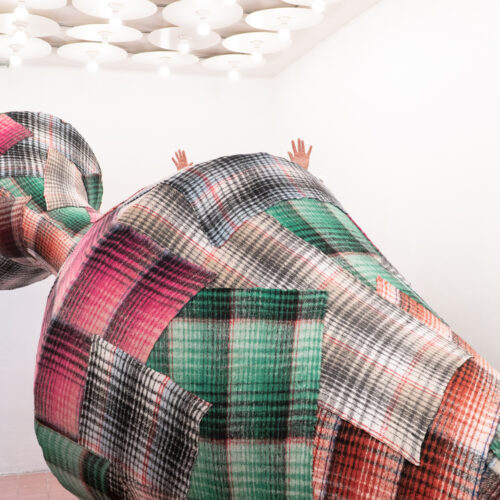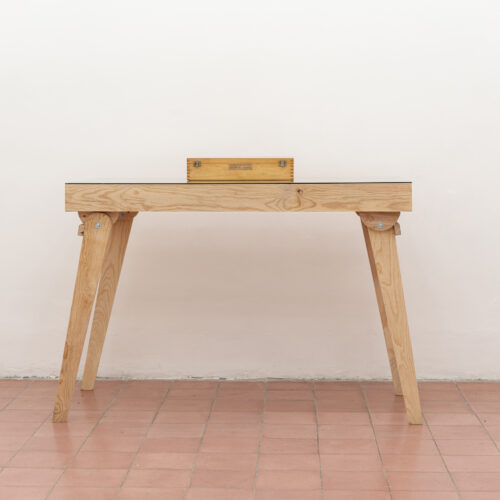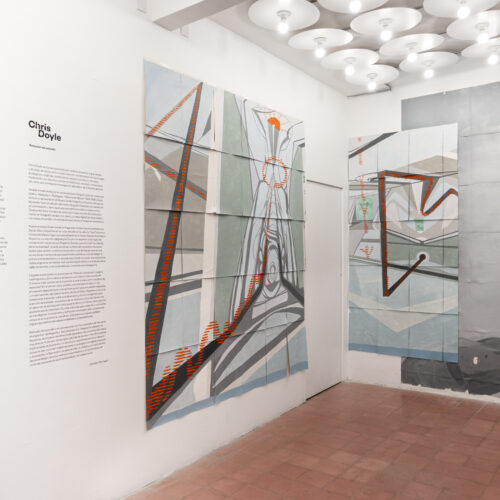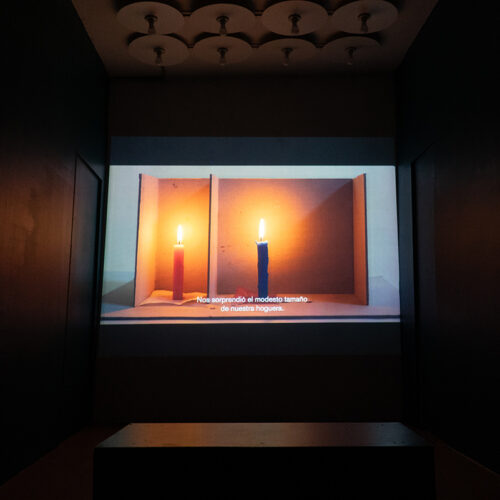Luis Hidalgo
Detachments
July 19th to August 16th, 2025
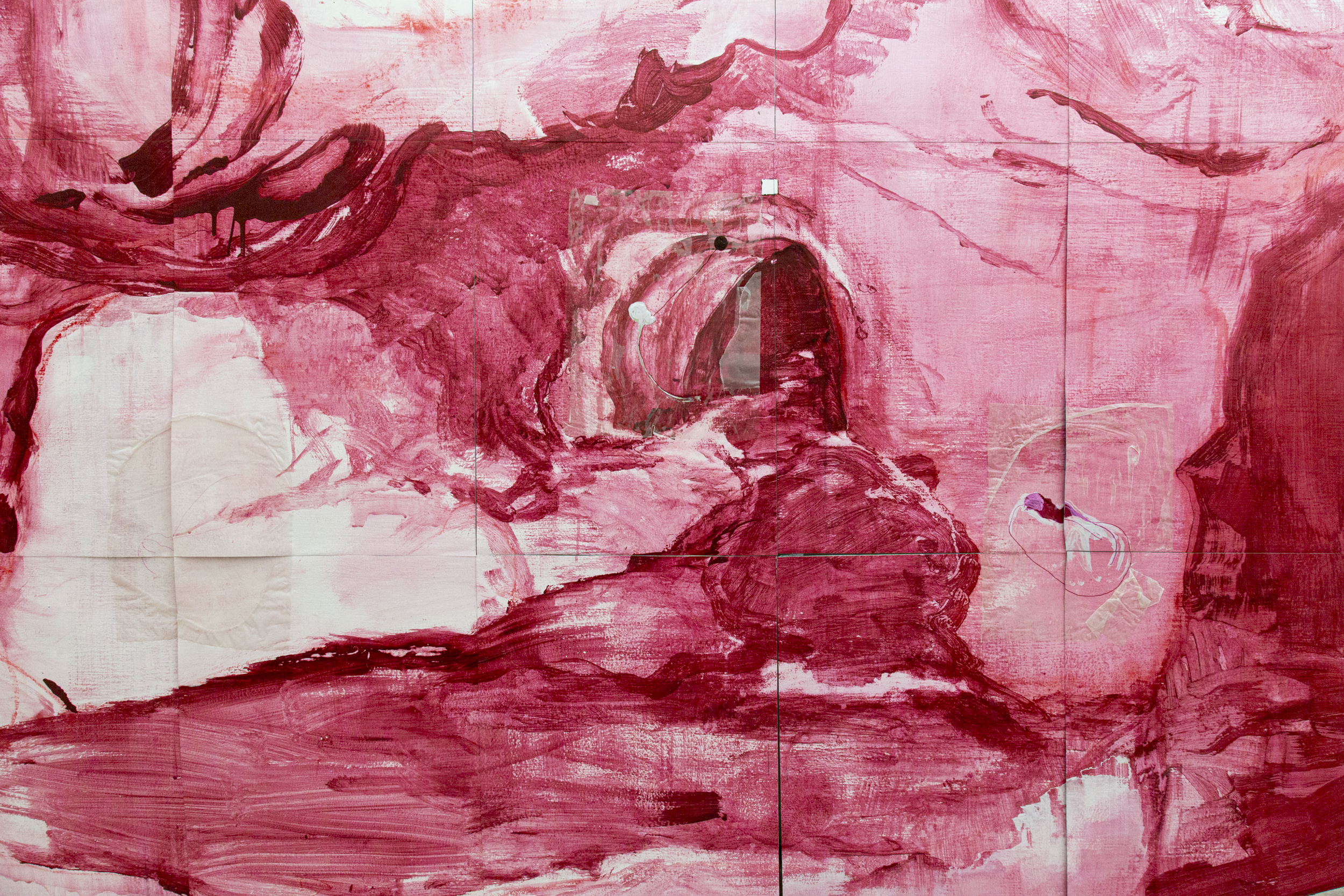
Text by Carlos E. Palacios
Luis Hidalgo (Mexico City, 1981) is interested in the relationship between space
and image. Based on this correspondence, he began to rethink materials and
techniques, he turned to digital processes of creation and printing and worked
with mirrors, unusual supports where image and place dialogue in an ideal, fluid,
uninterrupted way.
The artist has found in alternative technologies to traditional painting and drawing
the forms that define his language. His works involve a display of technical
virtuosity and his themes, coming from the same work processes, possess the force of the zeitgeist of our time, dominated by the virtual, the technical, the
fragmentary, the fluid and the evanescent.
Between June and July 2023, Hidalgo was in residence at the op.cit./foundation
This was a key opportunity to rethink his work and take up again in another
context his personal interest in space and its links with the image. The artist
returned to painting (in this case on walls) and resumed the immanence of this
technique and the possibility that, without the artifices of technology, it could
contain all the emotive power of a recent series of original self-portraits and
drawings on paper. In these works, defined by the emotionality of minimal
gestures, the detachment (which gives the title to this project) is very eloquent.
Luis Hidalgo expresses in them feelings of separation and transience that he
painfully felt at some points in his life.
Detachments reconciles both an intellectual interest in space and its reflections
and a mourning for separation. The piece detaches itself (redundancy aside)
from the walls that gave it form. It is a poetic journey through the small details of
the architecture of the residence, through previous brushstrokes of paint and the
slightest forms of the place that emerged as motifs that detonated poetic
associations, based both on the physical space and on those very personal
interior processes of the artist.
In such a way that if in some series of works, the mirrors allow the spectator a
pictorial way of accessing the space from their reflection in the support of the
pieces, invaded by translucent colours and organic forms; on this occasion the
doors, windows and locks became pure painting that imagines other places, such
as the large red cave that dominates this pictorial ensemble. The cave is an
eloquent visual metaphor, associated with the residency programme (entitled
‘cave paintings’), and with the emotionally profound condition that Luis Hidalgo
imposed on himself confined to that space of the residency; a place of work,
meditation and living. The artist returned to the origin, to the primary (to the
"primitive") by painting the essential without any technological additions, except
for the brush and the paint.
Detachments operates in this exhibition space as a structure of pictorial gestures,
independent of the wall that generated it. In a way, this spatial suspension of the
work slips a possible answer from the material nature of painting to the questions
about the place of images, which in a persistent way and as a fertile creative
detonator, Luis Hidalgo perseveringly proposes.
Luis Hidalgo (Mexico City, 1981) He is an artist who lives and works in Cuernavaca, Mexico. He studied visual arts at the Escuela
Nacional de Pintura, Escultura y Grabado “La Esmeralda.” In 2014, he presented his first solo
exhibition, Artificial Pulse, which is his first project on digital media, shown at Steve Turner
Contemporary, Los Angeles. And recently CENTELLA, presented at La Tallera, Cuernavaca,
2023. His work has been exhibited at Museo Amparo, Puebla; Los Angeles; and at Phillips
London, London. Since 2017, he has participated in various art fairs represented by Walden
Gallery under the direction of Ricardo Ocampo: UNTITLED, San Francisco; ARTISSIMA, Torino;
NADA Miami, Florida; ZONA MACO, Mexico City.
With painting, drawing, or printmaking as the basis of his production process, his work reflects a
particular interest in exploring the role played by the relationship between materiality,
technology, and image in generating visual representations. The material construction and the
different ways in which an image can be conceived are the main axes in Luis Hidalgo’s work.
This research has led him to manipulate digital tools and platforms to generate other types of
pictorial practices and experiences, always based on more traditional techniques, contrasting and hybridizing them in order to reflect on the consumption, creation, and relationship we have
with both plastic and digital images and their implications for representation today.
Since 2001 to the present, he has collaborated with Mexican artist Magali Lara on curatorial and
digital animation projects. His animations have been included in exhibitions at La Muse en
Circuit, Paris; Fundación Jumex, Mexico City; El Cubo, Tijuana; Museo Amparo, Puebla; and
Centro Cultural Recoleta, Buenos Aires.
